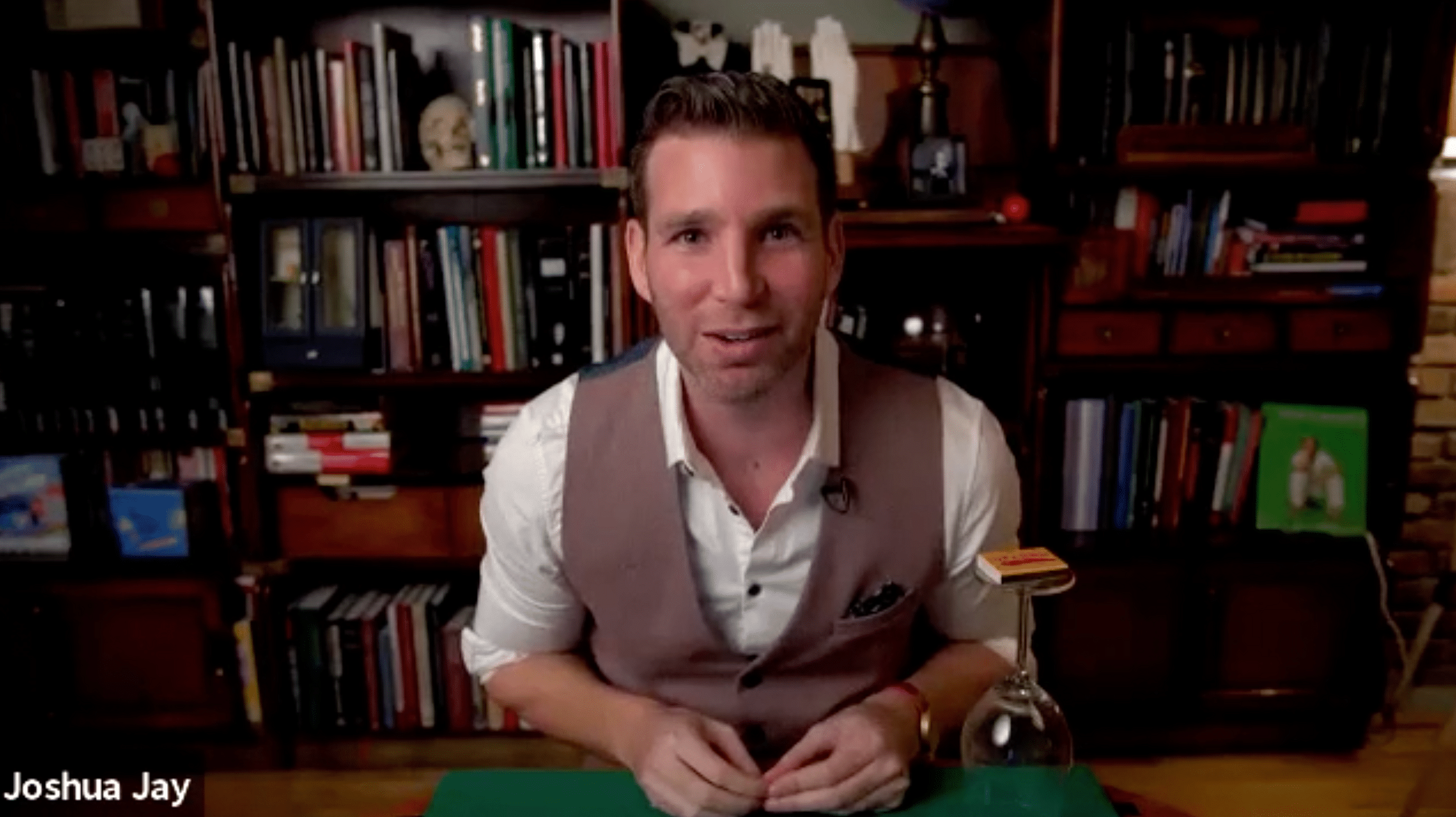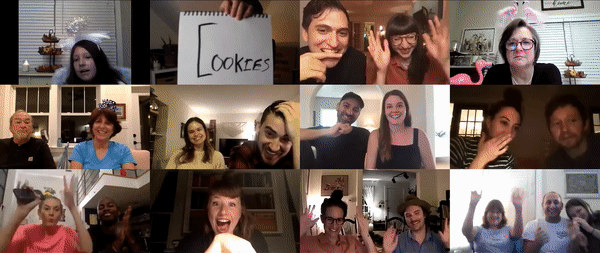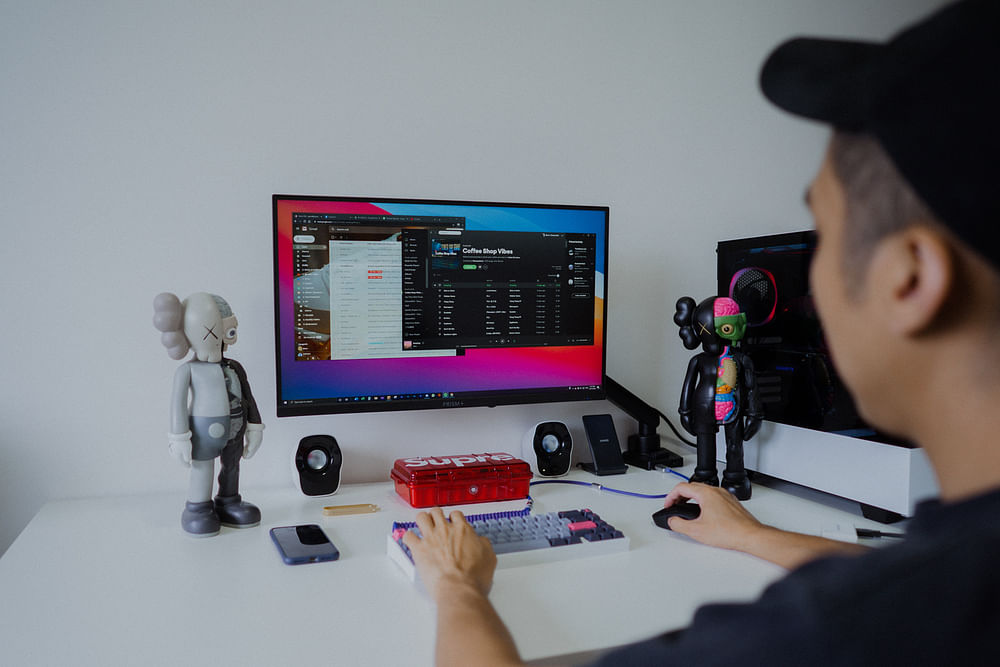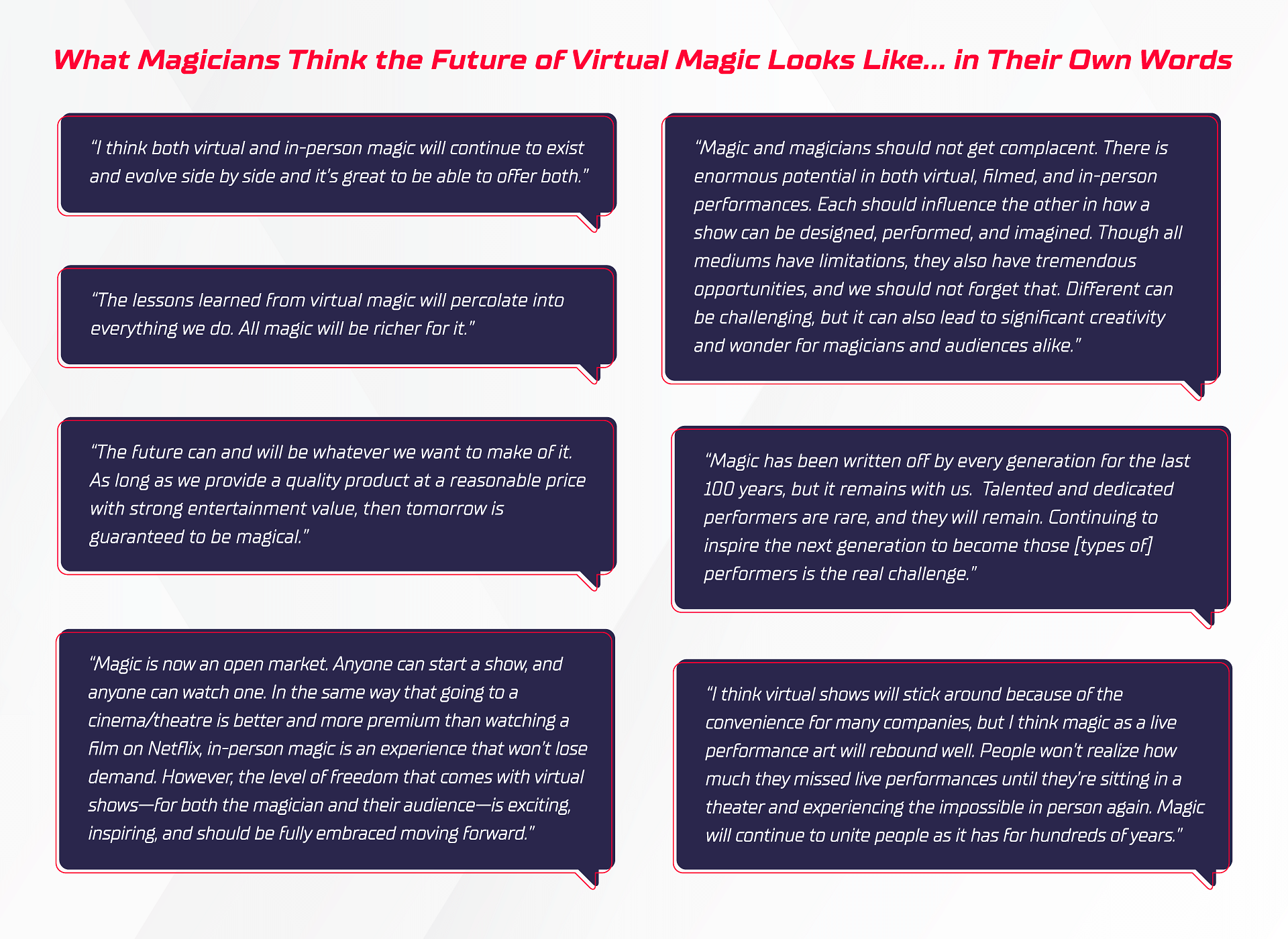Thoughts on Zoom Magic: Then vs Now
Ahead of our recent "Connected: Live" virtual magic convention, we conducted a survey with more than 500 magicians from around the globe about the future of virtual magic and virtual events as a whole. As many magicians experience the one-year anniversary of their first virtual magic show, we thought it would be a great time to share these survey results. And what better way to start than with a look back at how our views on Zoom magic have evolved over the last year. One thing is for sure. Virtual magic shows are not dead.

When the COVID-19 pandemic first began, 50% of respondents in our "Future of Magic Survey" labeled themselves as "skeptical about virtual magic shows, but also saw their potential." There was even a strong contingent (nearly 10%) of individuals that not only fully embraced the idea, but also encouraged others to start performing virtually as well. However, there were also 13% of magicians that admit they thought virtual magic shows "would never work".
One year later, with the return of in-person magic shows on the horizon, the thoughts on Zoom magic today are a bit more scattered.
44% of respondents either are still “really enjoying performing them” or “loving them and hoping they stay around for a long time”. Additionally, 25% of people that initially claimed they thought “virtual magic would never work” have now come around to not only see the benefit of virtual magic, but greatly enjoy performing shows online. In fact, each month, some of the greatest magicians in the world present their incredible virtual shows to magicians around the globe as part of our exclusive Vanishing Inc. Showtime series.
Yet, even as virtual magic has proven to be an effective way to present magic, more than 100 respondents (or nearly 20% of those surveyed) still believe “magic should only be done in-person”. It is important to note though that a little over 75% of these individuals also listed that they’ve “never performed a virtual show."

From managing technology to operating without the immediate gratification of audience feedback, transitioning into the virtual space was not easy for any performer. Simply put, the value of virtual magic was not immediately evident to everyone—as seen by the 7% of respondents that claimed “I've done a few virtual magic shows and they're not for me.” However, those who have performed a significant number of virtual shows seem to more strongly support the idea of virtual magic. Of the magicians that have done 50 or more virtual shows, only 5 listed that “magic should only be done in-person”.
Since virtual magic shows first started to gain popularity in March 2020, 60% of respondents have performed at least 1 virtual show. Almost 50% of magicians have performed somewhere between 1 and 100 shows. 
We must note that this is a rather large range. A magician with 75 virtual shows is likely to have very different insights and experiences than one with 5 shows. However, upon reviewing these responses, the 100-show mark emerged as an intriguing threshold.
If you’re a magician who started performing virtually between March and May 2020 (like a majority of our respondents did), you’d have to have performed somewhere between 9-11 shows a month (or about 2-3 shows a week) to reach that 100-show mark. A noteworthy, but manageable, feat. Especially when you consider that many performers may have also experienced a busier than usual Halloween and Holiday season.
An Even Playing Field?
Since virtual magic first became a reality, the topic of “competition” has been a hot topic. Instead of reaching just your local area, many magicians were now able to offer their services on a global scale for the first time ever. As such, since this is also a brand-new medium, every magician in the world essentially started on an equal playing field and has been potentially competing for the same clientele—particularly in the highly-contested corporate market.
With so many different variables at play, from previous client relationships to marketing strategies and even celebrity status (looking at you, “As Seen on Fool Us” website badge people), it’s hard to prove that some magicians were able to corner an emerging market (either intentionally or unintentionally). But, it is interesting to note that only 32 total respondents (6%) performed more than 100 shows with only 5 total magicians performing more than 350.
When asked about this, Paul Draper, a professional magician from Las Vegas and senior faculty member at Jeff McBride's Magic & Mystery School that is one of the five individuals from the survey to perform more than 350 shows, noted that it’s essentially impossible to corner the market—even if you take hybrid shows into account. One of the best things about virtual magic is that it has limitless potential. Anyone with a phone or computer from a small family in a rural town to a team leader for one of the numerous divisions that make up a major Fortune 500 company can now easily access world-class entertainment—without having to worry about managing high travel costs, accommodations or any of the other expenses of in-person events.
Have you noticed how it seems like every magician you know has posted on social media about performing for Google at some point in the last year? This is because companies like Google have set the trend for effective remote working and have a vast amount of different teams all around the world—each one looking for unique entertainment and ways to connect with their co-workers virtually. As such, there's seemingly an endless stream of opportunities for virtual entertainers...and that's just one company.

With many companies moving to long-term or permanent remote work, Paul’s comments make us think it's likely they will continue relying on virtual entertainment to engage their workforce, and any magician (or really any type of performer) who takes advantage of that stands to be quite successful.
Gary Ferrar, another member of the 350+ Zoom magic show club, also feels that virtual magic has enabled us to connect with our audience on an entirely different level. Magic has always tended to be overly self-serving and this simply doesn’t work in a virtual landscape.
To truly engage the audience, magicians have been forced to develop a show that revolves around their guests and forges one-of-a-kind connections. As a result, those performing virtual shows have had a one-of-a-kind opportunity to reflect on their performances and identify ways to improve. Even if they've had to invest a little in new equipment for this crazy new world of Zoom magic shows, seemingly every magician has come out on the other side as a better overall performer.

